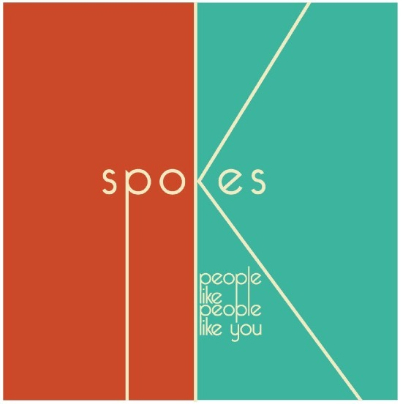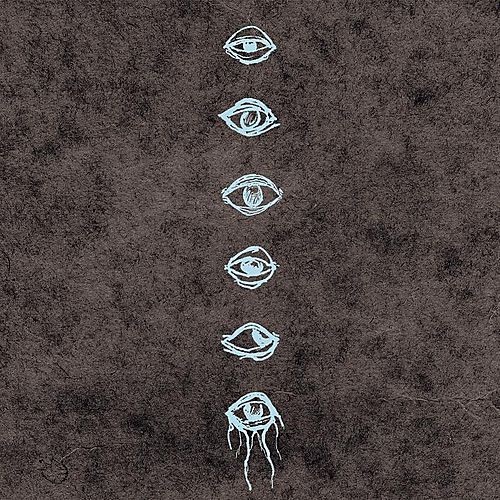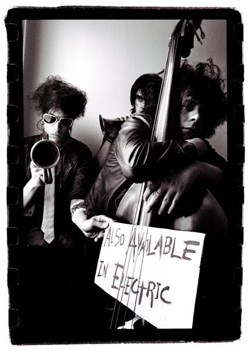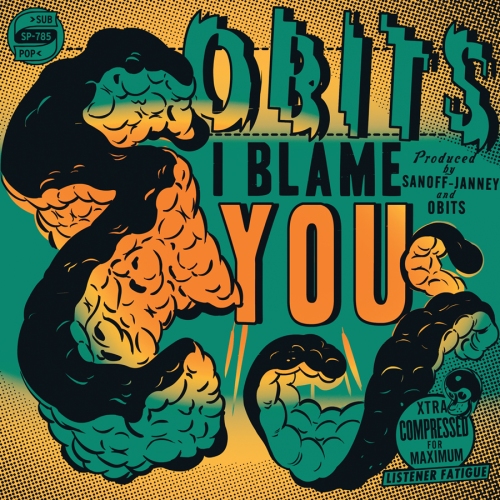Continued from yesterday.
 I’m reading ‘Watchmen’ for the first time – what should I look out for?
I’m reading ‘Watchmen’ for the first time – what should I look out for?
JL: It’s hard to say. I guess, reading the comic, there’s no way to catch it all on the first read or the second read. Try to pay attention to everything in every panel. Take your time to fully take in all the details of each panel, but don’t worry too much about driving yourself crazy wondering what you’re missing out on, because there really is no way to pick up on everything going on. Part of the fun of it is that every time you read it there’s new stuff that you missed before, and on the first reading is the only time you’re going to experience the thrill and the pacing of the whole thing and enjoying the whole thing itself. Basically, I now can’t see the woods for the trees because the examination of it, which was certainly fun, hasn’t allowed me just to take it as a story.
Now, the sex scene in ‘Watchmen’, right, is hilarious. It’s so out of place in the film. When I picked up the comic I immediately skipped to that part to see what it was like, and it was much more tasteful.
JL: That’s funny, because that hadn’t stuck out in my mind. I’ve seen a lot of criticism that says “oh, that one sex scene, it’s so bad!“, and I thought the Leonard Cohen song was a corny thing to throw in, but it kind of fit with the rest of the song choices. If anything stuck out as wrong to me, it was the earlier scene with Dan and Laurie where they’re fighting the thugs in the alleyway, and they’re just so completely brutal, tearing this crowd of thugs apart…
That scene was pretty shocking, I remember one of the guy’s bones being forced through the skin of his forearm, it was pretty nuts.
JL: Yeah, I’m as into screen violence as the next guy, I watch a lot of horror movies and all of that stuff, I’m not anti-violence in movies. But part of the point of those characters is that they’re the most human characters in the story, and if they’re just as violent and murderous and vicious as Rorschach or anybody else, then it kills some of the point of the story. If they’re vicious killers, what’s the point of Rorschach’s character? And also, because the movie removes all the human characters from the story and the comic book has so many more normal people in it, Dan and Laurie are supposed to be the most normal of the superheroes and it kind of de-humanises them by having them be so vicious. It takes away a lot of the emotional basis of the whole story. It’s like there’s no normal people to care about. I thought the movie was relatively well-done, considering how much worse it could’ve been. They did as good a job as one could expect.
What kind of horror movies do you like?
JL: Mostly older stuff, 80s stuff. For some reason, I haven’t watched that much modern stuff. I really love ‘Evil Dead II’, it’s one of my favourites. It’s so unpredictable, you think it’s a horror movie but it’s also a comedy, almost a superhero movie. By the time it’s done, you’re like “what the hell did I just watch?”, but the piece fit together so well. It breaks all its own formulas. And then there’s ‘Street Trash’, which is an absolutely brilliant movie. It’s not as well-known, but it’s just amazing. I had an experience recently where I saw it with a bunch of friends, I hadn’t seen it in a few years, and apparently the version that’s now available on DVD is a totally different edit than the version I’ve seen so many times, which sucks. There’s all these extra scenes that are really stupid and kill a lot of the streamlined pacing of it, so I feel like I can’t fully recommend ‘Street Trash’, and I feel bad that I’ve been telling everyone for years that they have to see it. I wish that wasn’t the case.
I read that Sam Raimi is planning to remake the original ‘Evil Dead’. What do you think about that?
JL: Well, I’m not sure what he’d do with it, the first one is pretty perfect as it is. The fact that it’s so low-budget and lo-fi is part of what makes it great. I finally got to see, after many years of searching, Sam Rami’s original film called ‘Into The Woods’, a sort-of student short film about 20 minutes long that later ended up becoming ‘Evil Dead’. It was impossible to get your hands on it for years, or it couldn’t be legally released, it just circulated on bootlegs. I was hoping I’d get to see it at some point, and I looked for it at conventions… I met a guy in Ireland in a bar who said he had a connection to it and that he’d send me a copy but I never got it. It was this kind of elusive, almost mythical thing, and then finally I tracked it down on YouTube but they keep taking it down. That was really cool to see, it was really low-budget, maybe some tenth-generation bootleg so it was uber-grainy and very amateurish, but it’s great to see how his whole concept started.
We’ve wandered off-topic somewhat. You’re playing the ATP Festival in May, and I can’t wait. Are you planning on sticking around for the whole weekend? Who do you want to see?
JL: I haven’t seen what the line-up is, I know that the day we’re playing we’re gonna be followed by Devo, or at least we’re on the main stage and there’s us, then a band, then Devo. I’m really excited, I’m a big Devo fan and I’ve never seen them play. I think at this point we don’t have a show booked on the following day, so I’ll check out what the schedule is.
In your song ‘Back When I Was 4’ there’s a line about how your older self flushes his best friend, a goldfish, down the toilet, and it breaks my heart. I’ve been there. Have you?
JL: I can’t say that I have. I had some frogs once that I kept in a box, but they escaped and unless they were living in my room I have no proof they survived. I like the idea of having a dog on tour, but it’d have to be for US tours only.
I guess it’s crueller to have a dog when you’re an international musician.
JL: Yeah, immigration laws are tough on pets.
—
As ever, you can visit Jeffrey here. This interview also appears here, at The Fly.









Wrongs #5 – The Enemy and The Public
A guaranteed route to second album success is to significantly alter your sound. Or, more accurately, a guaranteed route to second album success is to make people believe you’ve significantly altered your sound. Coventry rock trio The Enemy are about to release their second album after their debut, We’ll Live And Die In These Towns established them as lad-rock for the noughties, but with a political savvy that belied their youth. In truth, this political savvy extended to nothing more than saying “suburbs, right, they’re crap. And if you live in one, you’ll be an estate agent. Or in The Enemy.” These two fates are, it could be argued, equally useless.
The sound of the band’s debut was sickly brazen in its continual reference of the mod scene, utterly irrelevant in any pseudo-intellectual posturing it offered and lapped up by the nation’s beer-swillers. A magnificent success. The return of the band sees them advancing, like a hare to the present, from The Clash to The Stone Roses, from the 60s to the 80s. No Time For Tears, the first glimpse of their Music For The People LP is, if it considered symptomatic of the record as a whole, an overblown exercise in making one’s diminishing returns sound like an evolutionary step.
Ludicrously bombastic, particularly with singer Tom Clarke’s gnarled yelping, it sounds like Kasabian had they been born a decade earlier. This might be cheering to some, but for those who privilege invention over inelegance, this is reflective of a tortuous four minutes. “We gotta get out the city” screams the bluesy chorus (presumably intending to say “out of”, or at the very least “outta” rather than implying that you could fit a city in your pocket, perhaps, and then present it at will), replete with identikit baggy octave-spaced vocals over shockingly uninspired two-chord guitar proclamations. Elsewhere, we’re told that, as if we didn’t know and as if we couldn’t all see it ourselves, that Britain’s full of screwed-up chip paper. Lyrical barbs that were invented for the last generation. There’s nothing to distinguish or recommend.
The worst part of this scenario is that, despite how much the righteous indie press will protest, it will work on the great and proudly unwashed. Chris Moyles played it the other day and said it sounded ‘massive’ or something equally dense, and it will no-doubt resonate amongst the pre-existing fanbase that The Enemy have managed to collect and patronise. Whether it will garner them any new adulation from morons remains to be seen, but the required beef-up of their sound is a tried and tested winner.
—
Should you be in need of having your intelligence insulted, assaulted, thrown down some steps and left to decompose amongst the ketchup and gherkins that mingle almost poetically with the blood of stabbed kids in a shocking but potent metaphor for modern British society, go here. Or here.
Leave a comment
Filed under Wrongs
Tagged as music for the people, no time for tears, pseudo-intellectualism dressed up as salt of the earth equations of small-town britain with insane musical bombast, social commentary, the enemy, tom clarke, we'll live and die in these towns, Wrongs